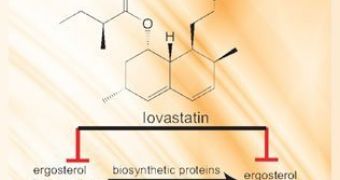American scientists say that copper and zinc in every day’s diet could affect the action of statin drugs, medications prescribed to lower cholesterol.
Statins inhibit an enzyme that synthesizes cholesterol, so they are drugs used to prevent cholesterol deposits that can lead to heart disease.
The molecules that break down food and provide energy during the metabolism process are called metabolites, and inside the body, they can interact with drugs.
Until now, no much was known about these interactions, so that drug performance can be enhanced and the side effects diminished, RSC reports.
Douglas Fowler from Stanley Fields' group came up with a project to analyze the effect of combining drugs with 52 metabolites on yeast cell growth, and what started as a summer experiment in a lab at the University of Washington in Seattle, led to an amazing finding.
“We continued with the experiments and found an unexpected result - copper and zinc impaired statin effectiveness,” he said.
The chemists found that in the presence of lovastin, the metal ions has high levels of proteins responsible for making ergosterol – a cholesterol analogue responsible for growth in yeast.
They repeated the experiment in cultured mammalian cells and they obtained the same results with cholesterol.
Fowler explains that “cells contain thousands of metabolites,” so “severe effects can occur because of interactions between these metabolites and drugs, for example, combining antidepressants with food containing large amounts of tyramine - found in meats, cheese and red wine - can be deadly.”
Understanding these interactions could help personalizing patient care and medication prescription, said Guri Giaever, an expert in gene function and gene pathways from the University of Toronto in Canada.
She added that “there has been much discussion in the yeast community about how genetic background affects experimental results, but it's only recently that the contribution of a cell's metabolic state has been considered.”
And since technology is constantly evolving, it should become easy to scale up thousands of metabolites and verify the function and toxicity of new drug candidates, said Fowler.
He is satisfied that even if “at the end of the summer, we hadn't gathered much useful data, [but] I was convinced that the idea was a good one.”

 14 DAY TRIAL //
14 DAY TRIAL //